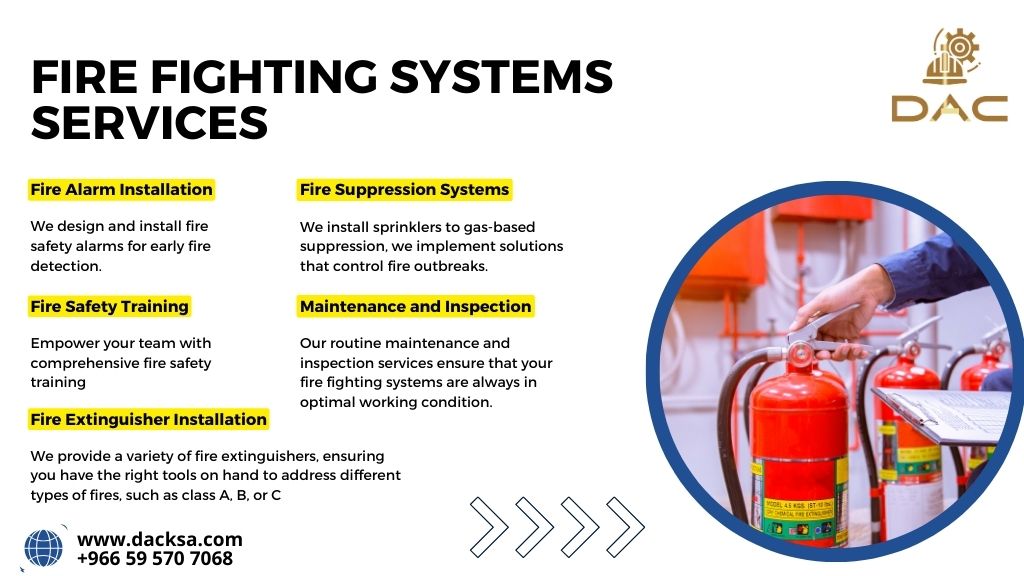Types of Fire Fighting Systems
There are several types of fire fighting systems available, each designed to address specific fire hazards and building requirements. Understanding the differences between these systems is crucial for selecting the most suitable one for your property.
1. Fire Alarm Systems: Fire alarm systems are the backbone of any fire fighting system. They consist of smoke detectors, heat detectors, manual call points, and alarm sounders. When a fire is detected, the system activates an audible and visual alert to notify occupants and initiate evacuation procedures. Fire alarm systems can be interconnected with other fire fighting systems for a coordinated response.
2. Fire Suppression Systems: Fire suppression systems are designed to suppress or extinguish fires automatically. They use various agents, such as water, foam, gas, or chemicals, to suppress the fire and prevent its spread. Common fire suppression systems include sprinkler systems, gaseous suppression systems, and foam suppression systems. These systems are effective in controlling fires and minimizing damage to property and assets.
3. Fire Extinguishers: Fire extinguishers are portable devices that contain firefighting agents, such as water, foam, dry powder, or carbon dioxide. They are essential for tackling small fires before they escalate. Fire extinguishers should be strategically placed throughout the building, easily accessible, and properly maintained. Training personnel on how to use fire extinguishers safely is crucial for their effectiveness.
4. Emergency Lighting Systems: During a fire emergency, visibility can be severely compromised due to smoke or power outages. Emergency lighting systems provide illumination in such situations, ensuring safe evacuation and enabling firefighters to navigate the building. These systems consist of battery-powered lights that automatically activate in the event of a power failure.
5. Smoke Control Systems: Smoke control systems are designed to manage smoke movement within a building during a fire. They help to maintain clear escape routes, facilitate firefighting operations, and protect occupants from smoke inhalation. Smoke control systems include smoke ventilation systems, smoke extract systems, and pressurization systems.
Understanding the different types of fire fighting systems is essential for designing a comprehensive fire safety plan. However, it is equally important to be aware of the fire safety regulations and codes that govern the installation and operation of these systems.
Understanding Fire Safety Regulations and Codes
Fire safety regulations and codes are put in place to ensure that buildings meet specific safety standards and guidelines. Compliance with these regulations is essential for the protection of life and property. Non-compliance can lead to penalties, legal repercussions, and increased risks during fire emergencies.
Fire safety regulations vary from one jurisdiction to another, but they generally cover areas such as building construction, fire detection and alarm systems, fire suppression systems, emergency evacuation plans, and maintenance and testing requirements.
It is crucial to consult with local authorities and fire safety professionals to ensure that your fire fighting system meets the required standards. They can provide guidance on the specific regulations applicable to your building type, occupancy, and location.
Additionally, staying updated with the latest fire safety codes and regulations is essential as they may change over time. Regularly reviewing and updating your fire safety plan and systems accordingly will help ensure continued compliance and optimal protection.
Contact DAC today for a free fire safety consultation in Saudi Arabia. We’ll help you create a comprehensive fire protection plan for your property. Email us at info@dacksa.com or call us at +966 59 570 7068
